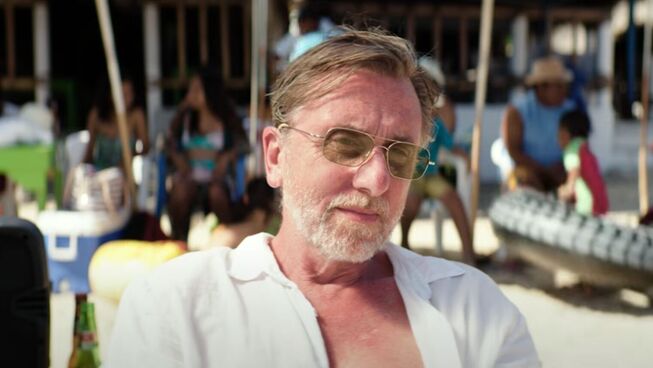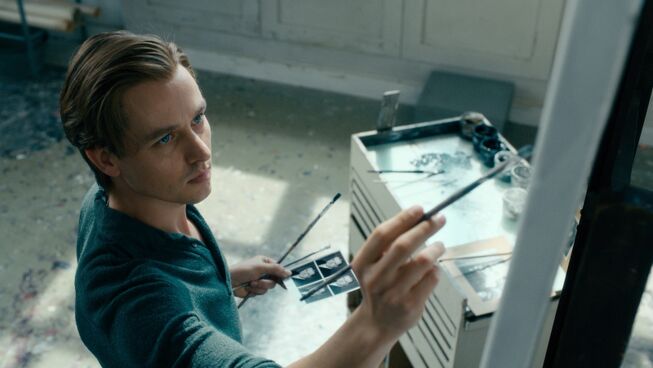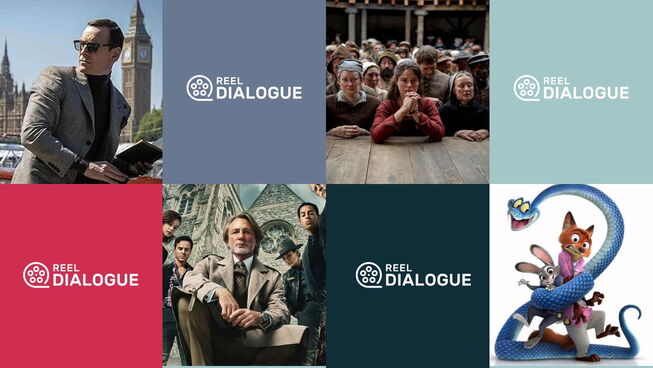
3 out of 5 stars
There are times in cinema when an artist makes something almost inexplicable and is left to the viewer for interpretation. Mexican writer and director Michel Franco (New Order) has done this very thing with Sundown. With minimal explanation and dialogue to rely on for context, he has delivered a film that will frustrate and bewilder audiences. At the same time, it permeates their very belief systems.
Set in the beauty and opulence of Acapulco, we are introduced to Neil Bennett (Tim Roth), who is on holiday with his sister, Alice (Charlotte Gainsbourg), and her family. They all enjoy the quiet elegance of the tourist community until their vacation is interrupted by a phone call. Neil and Alice’s mother passes away suddenly in London, so they have to cut things short to head back home. Yet, while getting to the airport, Neil forgets his passport and must let Alice’s family go ahead. Instead of joining them, he says he must retrieve his documents from the hotel.
After Neil watches them head to the gate, he does something unexpected. The tourist hires a cab that takes him to a local hotel that overlooks one of the beaches along the coastline. While he wanders the beach and drinks at the seaside restaurants, Neil ignores the calls from his sister. She is looking for his help with their mother’s funeral and the legal arrangements. Each day that passes shows how this wealthy man wants to detach himself from his life in England and live his days in this Mexican lifestyle. Until his sister finds and confronts Neil, who remains uncomfortably aloof while giving everything he has been given away.
What becomes apparent from the outset of the film is that audiences must be willing to sit back and allow things to unfold in their time. It becomes a lesson in patience and the reality of the complexities of life. Franco manages to keep the pace riding on a knife’s edge that will push the boundaries of perseverance for the most devoted viewer. To complement the director’s style, his casting of Tim Roth was a perfect choice. As he immerses himself in this role that keeps the audience at a distance until the final act. His demeanour and style will make people hate him while wanting to know what makes him make the decisions he does throughout the story.
Sundown is one film that continues to show that filmmaking is genuinely an art form. Like a painting in the local art gallery, this piece of art will mean something different to each person who happens upon it. By tapping into every emotion, this film is less likeable than something to be admired for what it is trying to convey. Even though many may hate the whole experience, it will slowly permeate your thoughts and will fester in your thoughts for months afterward. An unforgettable encounter that most will hope to shake, but it will be difficult to leave behind.
Reel Dialogue: Death
Throughout Sundown, death continues to be a factor that influences every scene and decision. Neil Bennett attempts to keep this subject matter at bay with little effect as it seems to envelop every component of his existence. This clear view of life is rooted in a godless world and contains little hope or joy, just bizarre non-existence that lacks appeal.
As the lights came on after the screening, the only emotion that countered the film's intent was the feeling of peace. Despite this cynical view of life, knowing the hope that is provided in the Bible was a refreshing and appealing look into life, death and the afterlife. Within the conversations that will inevitably follow after seeing Michel Franco’s view of life, people will have to confront the realities of the brevity of life and how to understand it.
This would be a great time to pick up a Bible and open it to the end. Yes, it is okay to read ahead. Revelation is a cracker of a book and one worth sitting down and discussing with a friend about the hope that can come in a discussion about the inevitable end to life.






